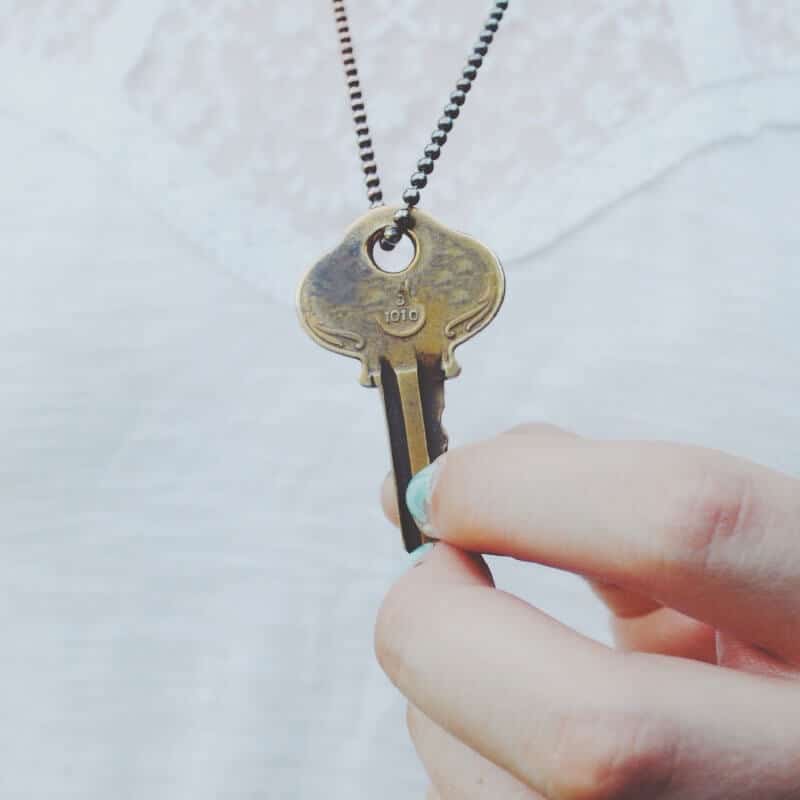
Our economy needs Australians to trust more. How should we do it?
Opinion + AnalysisBusiness + Leadership
BY Matthew Beard 29 OCT 2020
Imagine for a moment that your neighbour is a sweet, polite elderly man.
His partner has died and he lives alone. He has no family to speak of, and one day, his lifelong habit of purchasing lottery tickets pays off. He wins $50 million.
Suddenly, your brain starts ticking over. Statistically speaking, your neighbour doesn’t have too many years left. And when he dies, he’s likely to leave behind an enormous inheritance. What if you were the person he trusted to bequeath some of his wealth to? What would you do to earn his trust with so much on the line? Would you lie? Manipulate?
It’s important for us to ponder this, because new research from The Ethics Centre suggests Australia finds itself in a similar situation. According to figures produced by Deloitte Access Economics, if Australia was able to elevate its national trust score from 54% – its current level – to 65%, it would unlock $45 billion in GDP.
With so much on the line, it would be understandable to see political leaders and businesses looking for the fastest, most effective way to build trust. We assume more trust is better than less trust. However, that’s an assumption we need to be cautious of. “I have an issue with the connection of trust with growth,’ says Rachel Botsman, Trust Fellow at Oxford University’s Said Business School and author of Who Can You Trust?
“Trust,” Botsman explains, “is not always the goal. It’s intelligently placed trust.”
Consider this from the perspective of the elderly man in our imaginary story. For him, growing more trusting of his neighbour is only a good thing if his neighbour deserves to be trusted. If he trusts a dishonest neighbour who just wants his inheritance, that growth in trust isn’t something to celebrate. In fact, this increased trust is dangerous to him.
When we take the thought experience and apply it to Australia’s economy, the point still stands. As individuals, we don’t want to be more trusting of governments, organisations or markets unless they deserve our trust. Even if higher trust levels are good for GDP, it’s only good for us if it’s earned in the right way – ethically.
“Trust is the social glue of society,” says Botsman. “To manipulate that – because it can so easily be manipulated and tracked in terms of growth – feels wrong.”
Botsman has spent years speaking to businesses and governments about trust and encouraging them to value it. Today, she’s worried lots of her audience have missed her message.
She says, “I start this conversation about trust in organisations, and then a year later it’s become a commercial strategy. They’re trying to assess the return on investment, and, it’s like ‘no, that’s not that’s not I meant! When I meant ‘value’ I didn’t mean economic growth.”
Botsman worries about the effects of framing discussions around trust in the language of business and capitalism. Trustworthy decisions “might result in some kind of short-term financial loss, so it’s problematic that loss is caught up in the language of finance and money.”
Katherine Hawley, Professor of Philosophy at the University of St Andrews, and author of How to Be Trustworthy, defines trustworthy people as those who avoid unfulfilled commitments and broken promises. Basically, Hawley sees trustworthiness as the absence of untrustworthiness. Untrustworthy people make promises they can’t keep and fail to meet their obligations. If you don’t do these things, you’re probably a trustworthy person.
However, Hawley is quick to add that being trustworthy doesn’t necessarily guarantee that people will actually trust you. “There can be a significant gap between whether you are trustworthy and whether people can see you to be trustworthy,” she says.
Botsman agrees, “one of the hardest things to get your head around with trust is that even if you behave in a way that you think is the most trustworthy, you are still not in control of whether that person gives you their trust.”
This is one reason why Botsman has begun to advise organisations to stop thinking about building trust, and start thinking about acting with integrity, “because the language of intentions, motives, honesty and whether they best serve the interests of customers is much harder for companies to hide behind than questions of trust.”
A focus on integrity also helps prevent us from seeking trust in an undifferentiated way – not caring whether it’s intelligent trust or not. It shifts our focus away from what other people are thinking and toward our own activities.
“You would hope that people would want to be ethical, not just seem to be ethical,” says Hawley. However, in case that principle doesn’t persuade some people, Hawley offers a word of caution. She describes a phenomenon called ‘betrayal aversion’, “People get more angry in situations in which they first trusted and then found out that was a mistake than when they just didn’t trust in the first place.”
This idea, which comes from the work of behavioural economist Cass Sunstein, is a sober warning to those who see trust as a tool – something to be collected because it’s useful for growth, profit or advantage. “The risk for these businesses is that if people come to find out this was going on, or even find out that was their motive, then that could be worse for them.”
There is a strong moral argument – especially during a recession – for pursuing economic growth. For some, the importance of growth is likely to be enough to justify pursuing trust by any means possible. However, Hawley gives us a good reason to pause.
Chasing trust in the wrong way is something untrustworthy people do. And that makes the trust you accrue a bad investment – it’s fragile. The slower, more carefully accumulated relational trust might not offer the same returns in the short term, but it’s based on something more stable: ethics.
Ethics in your inbox.
Get the latest inspiration, intelligence, events & more.
By signing up you agree to our privacy policy
You might be interested in…
Opinion + Analysis
Business + Leadership
John Elkington on business sustainability and ethics
Opinion + Analysis
Business + Leadership
Workplace ethics frameworks
Opinion + Analysis
Business + Leadership
How to build a successful culture
Explainer
Business + Leadership, Climate + Environment




